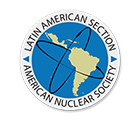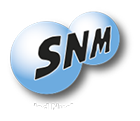TÓPICS
Nuclear Capacity Addition
- Nuclear power plant license renewal.
- Nuclear power plant life extension.
- New units.
Environment and Non-Energetic Applications
- Nuclear Energy Impact on Environment and Climate Change.
- Radiological impact,
- Isotope and radiation applications in industry, medicine, and agriculture.
- Tomography.
- Neutrography.
- Gammagraphy.
- Spectrometry.
- Nuclear Magnetic Resonance.
- Nuclear Chemistry.
- Particle accelerators.
- X rays.
Radiological Protection and Safety
- Qualification and Certification in Radiological Protection.
- Nuclear Instrumentation.
- Regulation.
- Shielding.
- Power and Research Reactor Radiological Safety and Security.
- Radioactive Material Transport.
- Radiological Waste Management.
Reactor Physics, Fuel cycle, and non-Proliferation
- Neutron Transport and Diffusion.
- Reactivity and Control.
- In-Core Fuel Burnup.
- Criticality.Cross Sections Determination and Measurements.
- Numerical Methods in Reactor Physics.
- Fuel and Core Design Optimization.
- Fuel Management.
- High and Low Level Waste Management.
- Final Repository Engineering Design and Materials.
- Reprocessing.
- MOX fuel.
- Safeguards.
Nuclear Reactor Thermalhydraulics and Safety
- Transient Analysis.
- Design Basis Accident.
- Severe Accident Analysis.
- Reactor Stability
- Probabilistic Safety Assessment
- Safety Systems
- Prediction and Early Detection of Malfunctioning of Safety Systems
- Risk Modeling
- Thermal Limits
- Structural Integrity
- Nuclear Reactor Thermalhydraulics.
- Nuclear Reactor Thermalmechanical.
- Computational Codes
- Computational Fluid Dynamics
- Active and Passive Safety Systems
- Two Phase Flows
- Critical Heat Flux, Boiling, Condensation and Stratification Research.
Operation, Maintenance, Materials, and New Designs Aging.
- Operational Experience.
- Inspection.
- Anomaly Detection.
- Simulation and Control.
- Emergency Planning.
- Instrumentation.
- Equipment Qualification.
- Nuclear Reactor New Technologies.
- Man-machine Interface.
- Decision-making Informatics.
- Modularity in Construction.
- New materials for Components and Structures
- Corrosion, Fracture, and Stress on Reactor Vessel and Internals.
- Testing and Analysis of Materials for the Nuclear Industry.
- Generation III, III+, and IV.
- Fusion Technology.
- Hydrogen Generation by Nuclear Power
Energy Planning, Public Acceptance, and Human Resources in the Energy Industry
- Nuclear Economy.
- Nuclear Energy and Energy Planning.
- Decommissioning and Dismantling of Facilities.
- Levelized Generation Cost Calculation Methods.
- Nuclear Energy and Public Opinion.
- Experience in education and training programs.
- Safety culture.
- Nuclear knowledge management.

